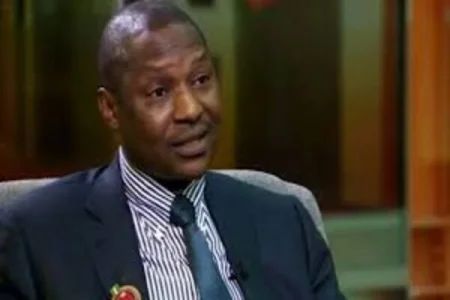
Emir Sanusi, former Central Bank Governor, highlights "unbearable" economic hardship in Nigeria during a fertilizer distribution event in Kano. The initiative aims to support 52,800 farmers amid rising food costs. Sanusi's comments reflect growing concerns about inflation and living costs, calling for more comprehensive solutions.
Former Central Bank Governor and current Emir of Kano, Muhammadu Sanusi II, has voiced strong concerns over the severe economic hardships facing Nigerians. Speaking at a ceremony distributing free fertilizer to farmers in Kano State, Sanusi described the situation as "unbearable," highlighting the dire circumstances many citizens find themselves in.
The event, aimed at alleviating economic pressure and boosting food security, saw 52,800 smallholder farmers, including women and persons with disabilities, receive 25kg of fertilizer each. Sanusi's comments shed light on the depth of the crisis, noting that people are resorting to buying half portions of pepper due to soaring food prices.
While praising the Kano State Government's initiative, Sanusi urged for more comprehensive action to address the ongoing economic challenges. Governor Abba Yusuf emphasized the state's commitment to supporting farmers and ensuring food affordability.
The ceremony also featured newly appointed Emirs of Gaya and Karaye, who expressed optimism about the program's potential impact on food security. Representatives from the All Farmers Association of Nigeria (AFAN) welcomed the initiative, anticipating it would help reduce food costs and support the farming community.
Sanusi's outspoken stance on the economic situation has drawn attention, given his influential position and background in economic policy. His comments reflect growing concerns about inflation, currency devaluation, and the overall cost of living in Nigeria.
As the country grapples with these economic challenges, initiatives like Kano's fertilizer distribution program represent local efforts to mitigate the impact on citizens. However, Sanusi's remarks suggest that more comprehensive, nationwide strategies may be necessary to address the root causes of the current economic hardship.




